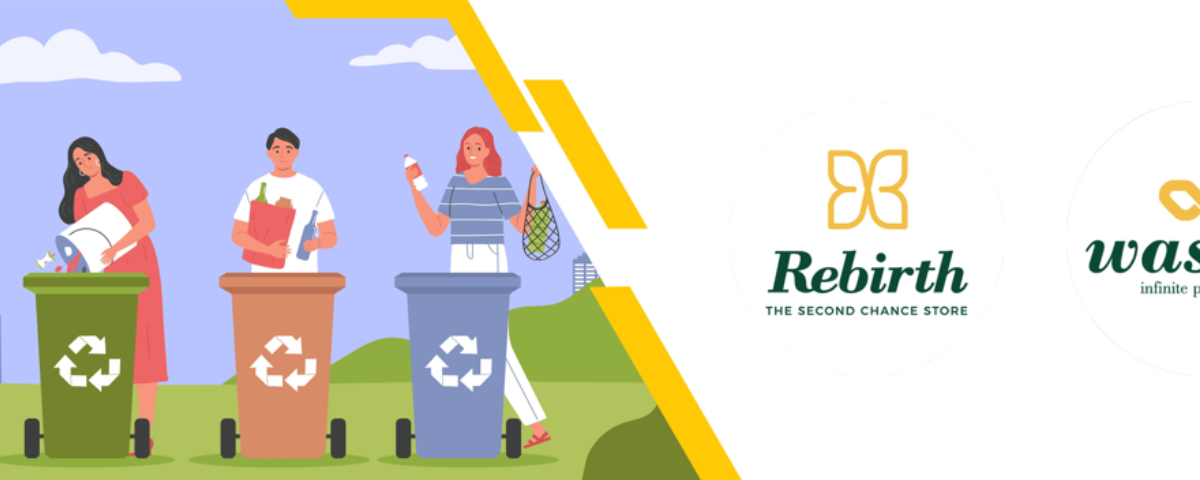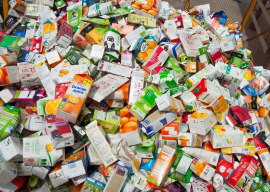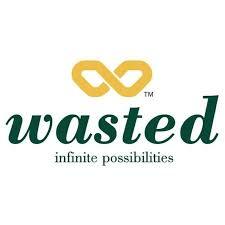





Keep this story going! Share below!
Wasted 360 Solutions is a Chennai-based social enterprise that tackles the challenge of recycling and waste management by focusing on hard-to-recycle "zero value waste" like cigarette butts, Tetra Pak cartons, and stained textiles, while upskilling and empowering informal waste workers. The business operates using a drop-off model for waste collection, reducing logistical emissions and making sustainable action more accessible for urban and high-income communities. By mobilizing communities, providing dignified work, and preventing landfill pollution, Wasted 360 Solutions directly supports multiple United Nations Sustainable Development Goals, including Responsible Consumption and Production (SDG 12), Decent Work and Economic Growth (SDG 8), and Life on Land (SDG 15).
Wasted 360 Solutions, founded in Chennai by Ann Anra in 2019, is redefining waste management by finding value in what society dismisses as “zero-value waste.” Materials like cigarette butts, stained clothes, innerwear, and multilayer packaging, which usually end up in overflowing landfills, are now being collected and responsibly managed through their innovation. Unlike conventional door-to-door pickups, Wasted 360 Solutions uses a drop-off model that partners with schools, offices, and organic stores as community collection points. This approach not only reduces the fuel and emissions linked with waste collection but also makes the system financially viable and scalable.
The enterprise’s impact extends far beyond environmental protection. By upskilling informal waste workers, sanitation staff, and marginalized groups—including transgender individuals and acid attack survivors—it ensures dignified employment and inclusion in the formal economy. In doing so, Wasted 360 Solutions addresses social inequities while building a skilled, motivated workforce committed to sustainable practices.
With a replicable and community-driven model, Wasted 360 Solutions bridges the gap between awareness and meaningful action. Looking ahead, the enterprise aims to expand its reach across India, scale its partnerships, and inspire people to see waste not as an end, but as the beginning of a more sustainable future.

The leader of Wasted 360 Solutions, Ann Anra, drew inspiration from a personal drive to understand and solve environmental issues within her community. She began her journey by wanting to “make sustainable action fun and easy” and initially embarked on the path without a clear plan for making money, driven by curiosity and a desire to uncover the realities of waste generation in India. Ann shared that she was motivated to find solutions for the “0 value waste” — waste like cigarette butts, Tetra Pak, and worn clothes which typically end up in landfill because they cannot be recycled commercially. She said, “Everybody has the awareness. They don’t have anything actionable that they can do. So that’s what I thought I should get people towards not just awareness, but something actionable.”
Despite challenges, including skepticism and lack of belief from her family and others, she persisted for years while holding down a job. Ann reflected on this struggle: “Most people didn’t believe in it, including my family. So it was more like... I just was trying to get data for myself.” She emphasized humility and resilience, explaining how she kept her identity low-profile to focus on the work, stating, “I purposely kept my face away from it. I just put up pictures of the waste that I would see and share with people.”
Her inspiration also comes from a deep empathy for marginalized workers in the waste sector, aiming to uplift informal and unskilled laborers with dignity and opportunity. Ann stressed the importance of staying true to oneself and cautioned against toxic environments, summarizing, “Just stay. Don’t stay in toxic stuff. That’s all. That’s a mistake we did as millennials.” This personal authenticity combined with grassroots commitment shaped her leadership philosophy and the organic growth of Wasted 360 Solutions.
By tackling waste streams that most systems ignore, Wasted 360 Solutions has shifted how communities perceive and handle “zero-value waste.” In its early years, the enterprise focused on creating accessible drop-off points in everyday spaces like schools, offices, and organic stores. This simple yet powerful model encouraged citizens to take action, while reducing the fuel-intensive logistics associated with conventional door-to-door collection. The success of these pilots drew attention from major stakeholders such as Tetra Pak, which partnered with the company after seeing how effectively it mobilized people to segregate and return complex packaging waste.
Over time, the impact has expanded from waste diversion to workforce transformation. The organization has deliberately included informal waste workers, sanitation staff, and marginalized communities—such as transgender individuals and acid attack survivors—by training them to handle diverse waste categories with dignity and safety. The launch of a dedicated thrift store and collection center in 2022 not only created a visible hub for circularity but also generated consistent revenue, achieving year-on-year growth of around 40%. These outcomes demonstrate that circular economy practices can thrive even in resource-constrained environments.
The innovation’s broader legacy lies in changing both perception and policy: waste once dismissed as unrecyclable is now viewed as a resource, and communities previously excluded from formal work are empowered with livelihoods. Together, these social and environmental effects signal a sustainable, scalable model that can be replicated across Indian cities and beyond.
Because Wasted 360 Solutions chose to address waste streams considered valueless, the company carved out a niche in India’s crowded waste management sector. By adopting a drop-off model that required minimal capital investment, the business avoided the heavy logistics costs of door-to-door collection and positioned itself as a lean, scalable enterprise. This early focus attracted corporate partners such as Tetra Pak and Bisleri, who funded awareness and collection programs under Extended Producer Responsibility initiatives. These partnerships not only provided credibility but also enabled Wasted 360 Solutions to sustain operations without relying on grants or external investment.
A major turning point came in 2022 with the launch of a dedicated dry waste collection center combined with a thrift store. This space created a dual revenue model—scrap sales and thrift retail—while simultaneously serving as a visible hub for community engagement. Within a year, the thrift store achieved break-even and has since maintained consistent growth of approximately 40% year-on-year. The store diversified beyond textiles to include books, furniture, and home goods, opening new market opportunities and establishing Wasted 360 Solutions as more than a recycling service—it became a circular economy brand.
Because the enterprise invested in upskilling informal waste workers and marginalized groups, it also benefited from a more reliable, committed workforce. Employee retention and community trust improved as workers gained dignified roles and customers saw transparency in how their waste was managed. By staying bootstrapped and resourceful, the business has achieved steady valuation growth while keeping future pathways open for franchising, technology integration, and impact-focused investment.
By designing its model around “zero-value waste,” Wasted 360 Solutions has delivered tangible environmental benefits while also addressing deep-rooted social inequities. The enterprise has diverted materials such as cigarette butts, stained textiles, tetra pak cartons, and innerwear from landfills, preventing hidden plastics and toxins from leaching into soil and waterways. By establishing drop-off points in urban communities, the company made responsible disposal convenient, reducing the likelihood of hazardous waste being burned or dumped. Ann Anra highlighted that cigarette filters, one of the world’s most littered items, carry cellulose acetate, a form of plastic that severely contaminates land and water. Through systematic collection and partnerships with recyclers, Wasted 360 Solutions has provided a pathway to contain this pollution.
Socially, the innovation has been just as transformative. The company integrates informal waste workers, sanitation staff, and marginalized groups, including transgender individuals and acid attack survivors, into its operations. By upskilling them to manage diverse categories of waste, it ensures not just employment but dignity and inclusion in a sector long associated with stigma. In 2023, the organization extended its mission by establishing an NGO arm to support waste workers’ families, focusing on education and recognition of skills often overlooked by formal institutions.
Because the business combined environmental preservation with social empowerment, it has become a replicable model of how sustainability can serve both people and the planet. Cleaner communities, safer ecosystems, and more dignified livelihoods are evidence of the broad societal value created through this innovation.
Get stories of positive business innovations from around the world delivered right to your inbox.

Wasted 360 Solutions, founded in 2019 by Ann Anra, in Chennai, is a social enterprise dedicated to tackling “zero-value waste” that usually ends up in landfills. The company operates on a drop-off model, enabling individuals and communities to deposit hard-to-recycle items like cigarette butts, stained clothes, Tetra Pak cartons, and other hidden plastics. By employing and upskilling informal waste workers and sanitation staff, the organization ensures dignified livelihoods while driving grassroots sustainability. Its initiatives include thrift stores, sustainable gifting, and corporate waste audits, all designed to make sustainable action both easy and fun. Today, Wasted 360 Solutions employs around 80–120 people and has diverted hundreds of metric tons of waste, aligning its work with several UN Sustainable Development Goals.